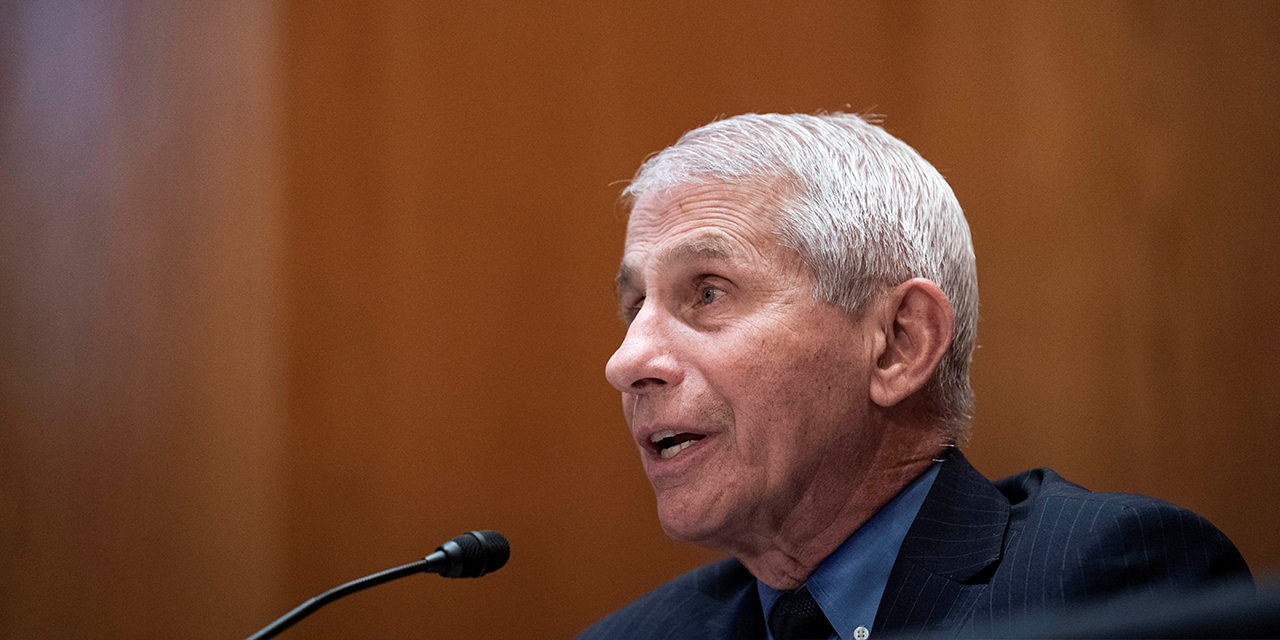On Wednesday, Dr. Anthony Fauci made the dramatic statement to MSNBC host Chuck Todd that “Attacks on me, quite frankly, are attacks on science.” He explained to Todd,
It’s very dangerous Chuck because a lot of what you’re seeing as attacks on me, quite frankly, are attacks on science. Because all of the things I have spoken about consistently from the very beginning have been fundamentally based on science. Sometimes those things were inconvenient truths for people and there was push back against me.
So if you are trying to get at me as a public health official and a scientist, you’re really not only attacking Dr. Anthony Fauci, you are attacking science.
The Independent referred to Fauci’s appearance as “fiery.” To set up the interview, Chuck Todd played a confusing clip of comments from a Tennessee Senator about Fauci and his interaction with Facebook’s Mark Zuckerberg. Fauci responded, “I don’t have a clue of what she just said!” to which Todd added, “Neither did we.” Nor did the viewer because MSNBC failed to offer any context whatsoever for the Senator’s comments. Thus, the clip was literally meaningless but was used by MSNBC to allow Fauci to address the assumed unreasonableness of his critics.
And this was the context for his statement that when someone is questioning him, they are questioning science. What Fauci is claiming is that he and science speak with the same voice. If science is infallible, then so is Dr. Fauci.
But in this very interview, Fauci unwittingly explained the problem with such an absolute statement. In addressing his change of position on wearing masks, Fauci admitted, “At the time we were saying we shouldn’t be wearing a mask, there were three factors…” He explained to Todd, at the time, “There was no evidence that masks worked outside the context of a hospital” and “we were not aware of the extent of asymptomatic spread, so we said ‘You don’t really need to wear a mask.’”
The Fallibility of Science
Fauci was admitting that scientific knowledge is not infallible. Science can only take a position based on available knowledge. It can also take the exact opposite position based on new data. That is what the scientific process is and does. Science has a long history of being wrong until it discovers what is actually right. And that is its power and wonder. But warnings about questioning science fail to understand what science actually is. When people claim “You can’t argue with the science” they fail to understand that is exactly what science itself does.
So yes, science is a remarkably beneficial and life-saving tool. But that it is certainly not more than it is: a tool. It is not means of determining final truth. It can only tell us about what physically is based on careful observation and measurement. Last year, Michael Strevens, a leading philosopher of science at New York University published an incredibly important book that all fans of science and human knowledge should read. The Knowledge Machine: How Irrationality Created Modern Science. Strevens’ seemingly counter-intuitive subtitle could have easily been “The Humbling of Scientism.” He gives his reader a hint of science’s limits in the titles of his second and third chapters: “Human Frailty” and “The Essential Subjectivity of Science.”
Strevens’ confident humility about the glory and wonder of science allows him to put these two things together. When people like Fauci and astrophysicist Neil deGrasse Tyson say science is THE way we know anything, they demonstrate their misunderstanding and overstatement of what science is. Science is a tool among many that guides us to truth. It is not certainly truth itself.
Strevens is a refreshing correction to this hubris of scientism, explaining that while science is remarkably powerful and has produced stunning advances that have improved human existence in innumerable ways, it is not more than it is. In fact, as a man who has committed his life to the study of science, he tells us science is “far from the only thought system capable of generating novel and original ideas.” He is not shy in saying “Philosophy, for example, is its equal in this respect.” What makes science unique from, but not superior to philosophy, is its “unparalleled…ability to test those ideas thoroughly.” And by testing itself, it can adjust itself. Thus, Fauci and the Centers for Disease Control’s changing position on masks.
Science certainly is fallible and so is every doctor, no matter how learned or respected. And honest science is a very effective tool in revealing the limits of our current knowledge. Fauci made that very point in his sermon against? criticism.
You can see the entire interview here:
Photo from POOL/REUTERS






